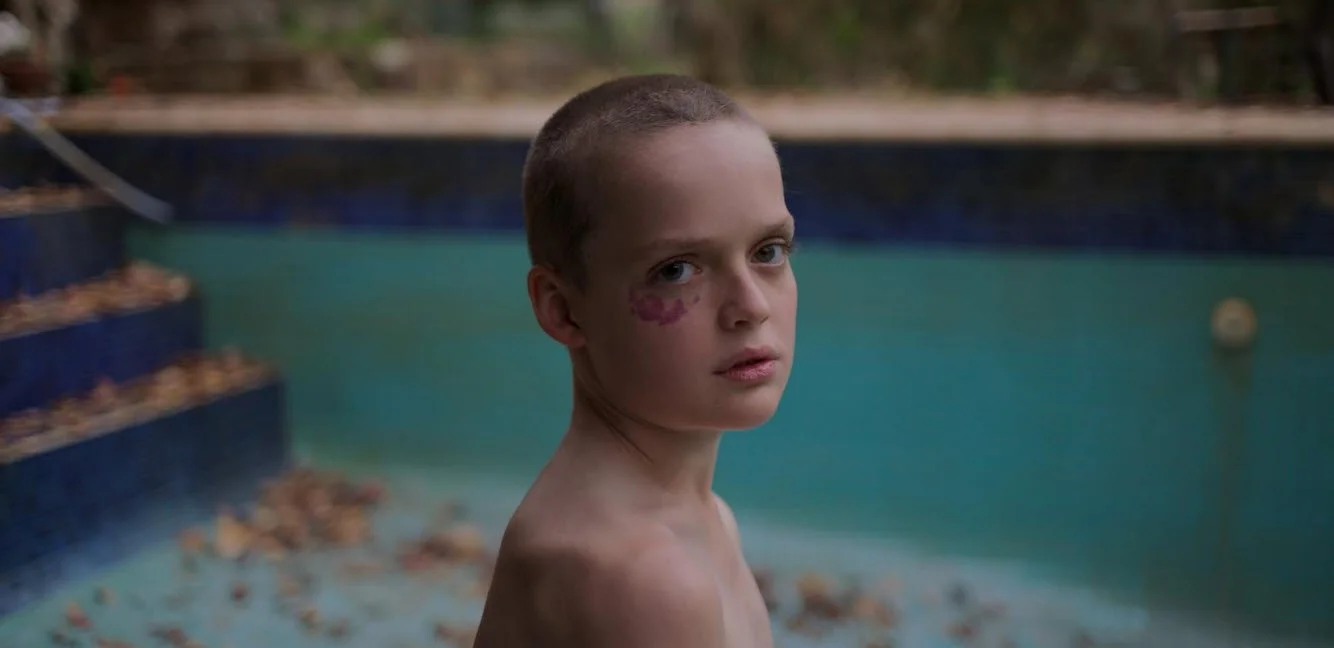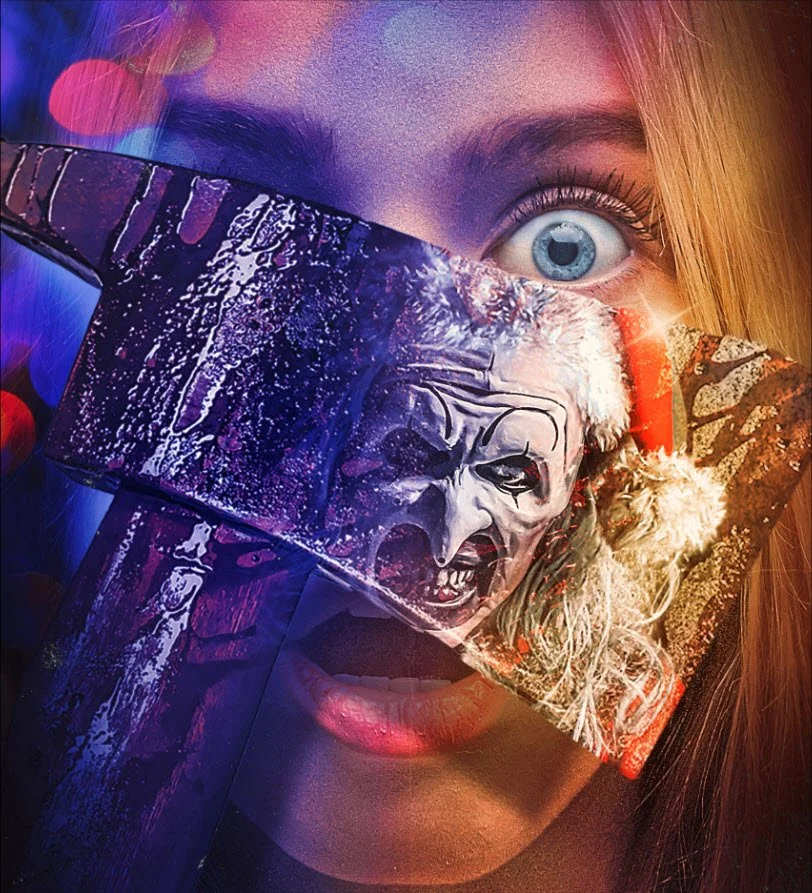It Comes at Night (2017) - Review
It Comes at Night is a confusing movie. Not because the plot is overly complex. Not because there is some big cliffhanger with unanswered questions. Not because it’s too abstract to pull meaning out of it. It’s confusing because it is such a straightforward movie that is trying to do a lot of things at once—some of which are interesting and less often explored in movies—but it then opts for a surprisingly simple conclusion to it all. I like it, and yet I don’t.
Image: 24
Pros
Tension is high throughout the whole movie, even when nothing is happening
Dialogue is straightforward but has small clues or details in it to make the whole experience more believable and meaningful
Horrific moments and imagery are effective when they happen
Acting is good across the board from the small cast
Shorter than average movie length
Cons
The direction the plot takes and its reliance on an unexplained plot device is a letdown
Misleading title, marketing, synopsis, and premises may disappoint those who were expecting something more
A lot of early hints or symbolism is not further explored; the final act, while intense and dark, makes much of the “horror” leading up to it meaningless
Plot & Thoughts
Paul (Joel Edgerton), his wife, Sarah (Carmen Ejogo), and their son, Travis (Kelvin Harrison Jr.), have just had to bury Travis’ grandfather, Bud (David Pendleton). Bud was suffering from a terrible disease that has spread across the world and seems to have a 100% infection rate with humans unless you’re wearing a gas mask and gloves (I guess). Rather than let the old man suffer and risk infecting the rest of the family, it’s decided that he should just be killed and have his corpse burned. Paul and his family are living out in the wilderness, away from other people, to avoid the infectious plague and survive in a post-apocalyptic world. So, there’s nobody else who’s going to protest the execution of the grandfather, and even Bud seems pretty resigned to it. The family doesn’t get time to mourn, however, as a man shows up on their door looking for supplies for his own family, who are waiting for him to return somewhere. After a very harsh vetting process and a bit of convincing with the promises of food, Paul agrees to help the man, Will (Christopher Abbott), and decides to bring Will’s family back to his house. This is done partly out of goodwill and partly out of distrust, setting the stage for paranoia to grow.
Image: 24
From there, not a whole lot else happens for a long time. I wasn’t bored because of this, though, because the steady tension and my own expectations of something sinister or supernatural being just around the corner kept me engaged in the movie. However, once I finished watching the movie, I realized a few things. It Comes at Night relies heavily on you not knowing what to expect of it. Unfortunately, the ominous name and some dialogue that points to the movie’s title being a hint of something more out in the wilderness are just red herrings. This movie isn’t about anything other than human nature and how paranoia can make good people do terrible things. Yet, if you take away all the nightmares that Travis has, the subtle hints at something lurking in the darkness, and the string instruments of the film’s score that play when nothing is happening, you have a movie that is incapable of getting to the actual horrific moments in the final act where the true nature of the film reveals itself.
There are a lot of small things that I like about this movie. The acting is good. The dialogue is simple but smart. The atmosphere is rife with tension. I like the subtle and overt hints at how the characters feel about each other. I even like the idea of focusing more on the monstrous nature of people instead of something supernatural. However, as a whole, I dislike It Comes at Night for its somewhat dishonest presentation.
Image: 24
You may say it’s my own fault for expecting so much, but the title and the synopses that I kept reading were all vague in ways that insinuated there was something else to it. This was further exacerbated by Travis’ nightmares, which were also somewhat surreal and hinted at something more. There’s even the scene where the family dog runs after something we don’t see and disappears into the woods, making Travis believe that there’s something out there. Having once had a dog that would shoot out in the dark under the assumption there was something to chase, even if there wasn’t, I can relate to the situation, but it’s the reaction of the characters to the dog’s “unusual” behavior that makes me expect something more. While I like it when films opt not to show us too much of any monsters or creatures for the purpose of letting the audience imagine it, I don’t like it when a movie overtly hints at something more but then never delivers in a way that confirms our suspicions, or matches the marketing material, at the very least. The dialogue hints at something with lines like “we don’t go out at night,” and there are a few dreams in which Travis is looking at “something.” However, the danger never comes from anything other than people.
I think, had this movie chosen a less-obviously “horror” title that hints at something, and had it opted to not be so much of a “horror” movie over the course of the entire film, it might have been better. The nightmares that Travis has never really hint at anything in terms of what actually happens in the movie. There are some scenes and bits of dialogue that make you anticipate something occurring later and causing more drama, but that never happens. For example, don’t get too nervous about Travis’ sexual interest in Will’s wife because that doesn’t manifest into anything meaningful.
Image: 24
If the filmmakers wanted to make a drama or thriller about the nature of paranoia, with the same premise and the same horrific final act, they should have just done that and worked on more scenes involving dialogue and characterization. There is plenty of good acting and dialogue here, and the tension in the scenes in which the drama unfolds between people is certainly effective. Instead, half of the movie uses quiet, ominous tension and the occasional jump scare to remind you that it’s a horror movie, as though it’s preparing you for the last act, which is rough but certainly not unbearably horrific. Had this movie just been a drama with slowly building tension and paranoia, and then that last act happened, I think it would have been much more effective and powerful.
Also, I have a big gripe with the plot device that kicks off the last act—for the sake of avoiding spoilers, I’ll keep it vague. When it occurs, there are some legitimate questions raised by the characters that are never answered. It also immediately raised some questions with me because there are some particular details about the scene that seem a bit late to introduce in the film. Essentially, it’s a scene that’s meant to move everything along quickly enough that you won’t stop to notice the plot holes it’s creating in the process. Not to mention, I also dislike this moment because it’s the point at which the movie decides to go in its determined direction and leave all the other hinted possibilities behind. Though the final act may be effective on its own, I think it ultimately ruins the movie after this turning point.
Image: 24
TL;DR (Conclusion)
When you look at the individual pieces from It Comes at Night, like the acting, dialogue, tension, nightmarish imagery, fear of the unknown, and creeping paranoia, it seems like a good movie. However, with them all together, It Comes at Night is more like a confused movie with an identity crisis. I think the filmmakers had the talent to make something great because the tension and the horror are effective, but the plot just doesn’t utilize them in a way that works. There are a lot of missed opportunities, as well as plenty of misleading moments, that make the whole thing just a big letdown by the end.


















![Immaculate (2024) | [Insert Demon Baby/Good Jeans Pun Here]](https://images.squarespace-cdn.com/content/v1/5d39e718d8ec690001509614/1738429487595-5IJ1I8Y8YIXL59W37Z24/Immaculate_01.jpg)



